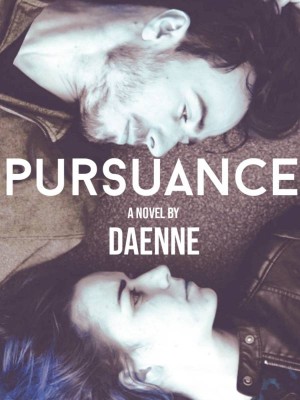Grasspatch was a town in the middle of nowhere. It was big enough to have a small school, but not quite large enough to have a separate news agency and post office. Alexander Monroe, a clean-shaven, boyish twenty-six year old, worked for Mr Wiggins, the post master. His main responsibility was to sort the mail then deliver it. On his trusty bicycle it took him no more than an hour to navigate the few streets of the town, and when he’d finished both his deliveries and his morning tea, he helped Mr Wiggins in the shop.
Apart from the daily mail run, the remainder of his duties could never be thought of as either physically or mentally taxing. His list of mundane, though nonetheless important, tasks included selling newspapers, magazines and cigarettes, printing off Lotto tickets for hopeful punters, weighing parcels and finding the correct postage on a faded and tattered table of weights and costs, and assisting with the very occasional passport application. It was an adequate existence, yet on some days, particularly when he hadn’t slept well, or when his biorhythms were low, he’d stare out at the world from behind a shelf of Woman’s Weekly and Woman’s Day, and wonder if the future held anything exciting for him.
One fine morning Mr Wiggins, his thin hair like a snowy mist around his pink, freckled scalp, looked over his half-glasses. “Mornin’,” he said before returning his attention to the accounts. “Got a parcel for you to deliver to The Mansion. Needs a signature.”
Alexander’s cheery expression wavered.
The Mansion was the name the townspeople had given to an enormous construction just outside the outskirts of town on the west road. It was an unusual building, not the least reason being that it easily eclipsed every other building in Grasspatch in both size and grandeur. It was single-storey in some parts, two-storey in others and there was even a section that was three-storeys. There were two large towers, the tops of which were permanently shrouded in cloud during the winter months, and a great dome which sat almost at the direct centre of the building.
The surrounding grounds were enclosed by a fence with a sandstone base and sandstone columns equidistant from each other. Between the columns, spearing up from the stone, were black wrought-iron bars with pointed tops. There wasn’t much of a garden, just an immaculately kept lawn, some deciduous trees and bushy shrubs, and a small ornamental pond where wild ducks sometimes swam on their way through.
All of this was owned by a man called Christian O’Neill, whose arrival in Grasspatch two years earlier had sparked much debate as to who he really was. Some thought he was a retired rock singer or actor wanting to get as far away from the limelight as possible. Those same people agreed he could find no better place than Grasspatch to accomplish such a goal. He was in his early to mid-thirties so it was entirely possible he was a man whose star had faded. Others, perhaps with a flair for the dramatic, felt certain he was part of the witness protection scheme. Why else would anyone move to Grasspatch? Yet the size of his house coupled with the assumption he had no means of income punched a hole in that story. It was a mystery and since Mr O’Neill rarely ventured out, there was no one to confirm or deny any of the many theories.
“What is it?” asked Alexander, who was as curious as any other resident of Grasspatch would be.
A look of annoyance shadowed Mr Wiggins’ face. “What’s what?” he asked gruffly.
“The parcel?”
“It’s over there,” Mr Wiggins replied, pointing in the direction with the pencil he was holding. “By the box of mail.”
Alexander walked behind the counter and picked the parcel up. It was quite heavy. “No, I mean what’s inside?”
Mr Wiggins looked up from his figures and held Alexander’s attention with an icy glare.
Alexander put the parcel down.
“It’s none of our Goddamn business what’s inside! Now get yourself together, get on your bike and deliver the mail. I want to finish these accounts today, so I need you back as soon as possible.”
Alexander looked down at the mail he’d sorted the previous evening and shrugged. “Not much today.”
“Goo-ood,” replied Mr Wiggins, without looking up.
“Of course, it’ll probably take me the same amount of time as usual because of this parcel for Mr O’Neill.”
“Goo-ood,” replied Mr Wiggins, his voice making it clear that he was focused on more important things.
Alexander picked up the box of mail and took it outside to his bicycle. He placed the box inside the tray that was attached to the handlebars and returned inside. He took Mr O’Neill’s parcel, held it up to his ear and gave it a little shake.



